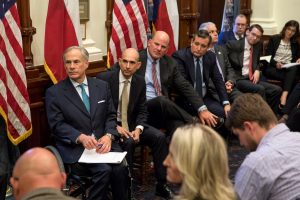The US government avoided a shutdown with a late-night spending bill passed just before the midnight deadline. The Senate passed the bill 88-9, with amendments added to include $16 billion in emergency disaster assistance and FAA funding requested by the White House. However, the passed bill did not include any additional aid to Ukraine, despite that being a major sticking point for the Democrats during debates on Saturday.
For weeks, fears of a shutdown had mounted as Speaker Kevin McCarthy tried to engineer a spending bill that could pass without the support of the Democrats. However, the ever-problematic right-wing caucus of Republicans once again refused to work with McCarthy. In the end, the vote passed the house 209-126, with more Democrats than Republicans backing the final bill.
Read More: Plies Calls Out Donald Trump’s Hypocrisy Over Shooting Looters
Matt Gaetz Vows To Oust Kevin McCarthy
However, McCarthy’s eleventh-hour move to compromise with the Democrats has left him vulnerable. Florida Representative Matt Gaetz announced his intention this week to introduce a motion to vacate, which would trigger a vote of no confidence against McCarthy. McCarthy agreed to a resolution during the historic Speaker of the House elections earlier this week that a vote of no confidence could be triggered by just a single member of the House. “You know what, if somebody wants to remove because I want to be the adult in the room, go ahead and try,” McCarthy said of Gaetz’s statement. Gaetz did not indicate when this week he would be submitting the motion.
It’s unlikely that Gaetz and his far-right caucus have the numbers to take down McCarthy. This is especially because the Democrats are unlikely to back Gaetz’s ploy. However, it’s yet another hold-up for a Congress that has been stagnant since the midterms in which the Republicans flipped the house. Last week, the Republicans began official impeachment hearings against President Biden. However, they were mostly an embarrassment for the Republicans, especially when their own star witness said that Biden had not committed an impeachable offense.
Read More: Joe Biden Should Drop Out Of 2024 Presidential Race, Bill Maher Believes
[via]
The post US Government Avoids Shutdown, Matt Gaetz Plans To Oust Speaker Kevin McCarthy appeared first on HotNewHipHop.


